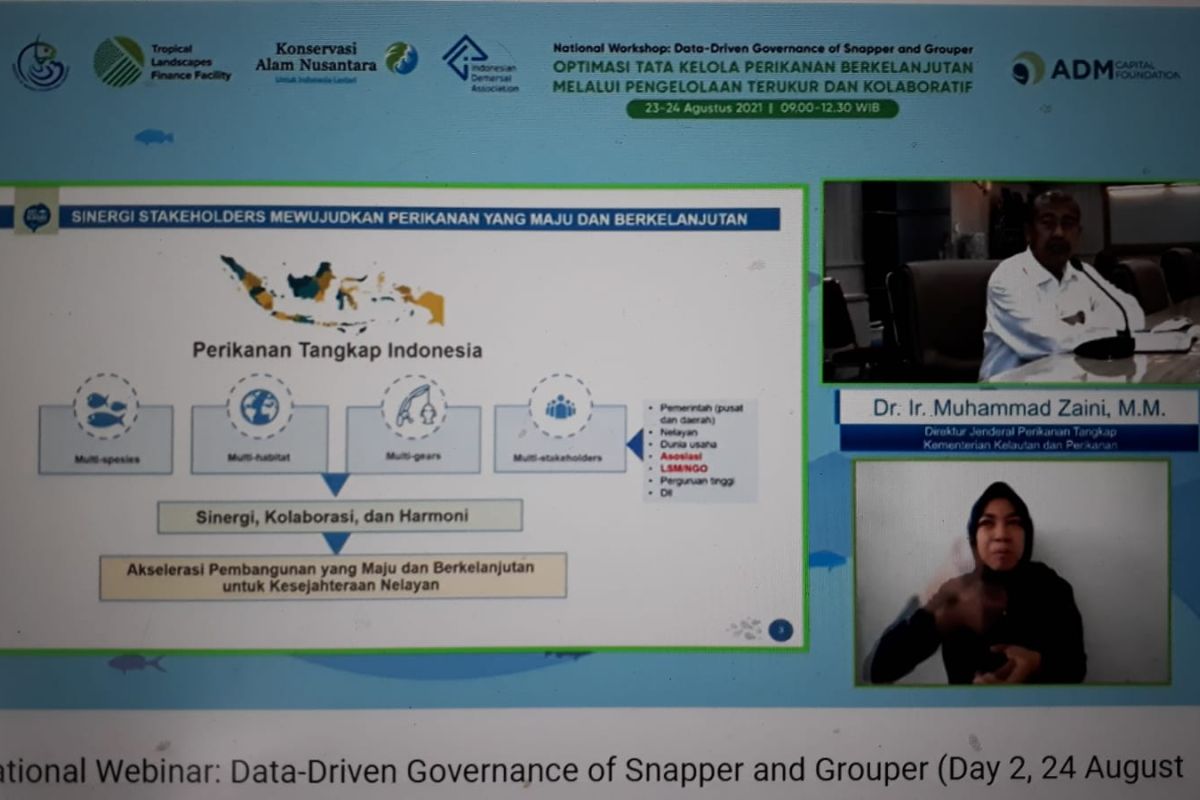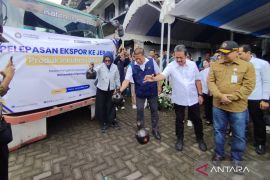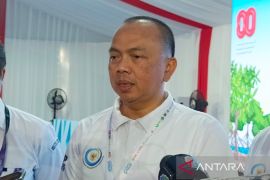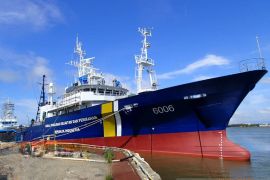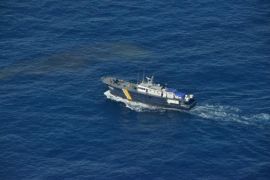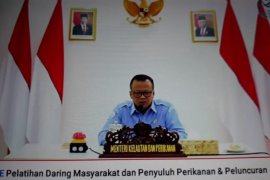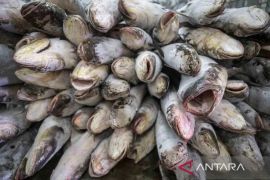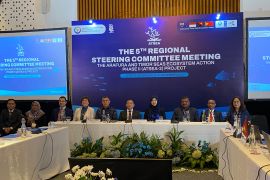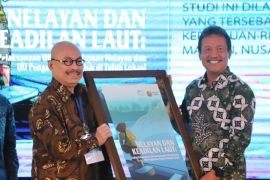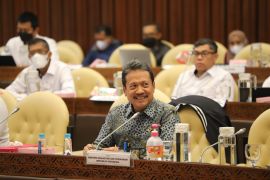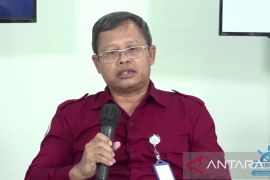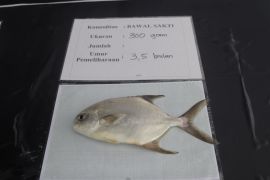If we can utilize the remaining potential, our total production value can reach more than Rp300 trillion.Jakarta (ANTARA) - Director general of capture fisheries at the Maritime Affairs and Fisheries Ministry, Muhammad Zaini, has invited stakeholders to utilize the remaining potential of marine and fisheries resources in Indonesian seas.
"We have only caught 6.7 million tons against 10.2 million tons of our allowed captured fisheries quantity potential. Thus, there are still 3.5 million tons of the potential, worth Rp132 trillion," he said during a webinar on sustainable fisheries management policies here on Tuesday.
"If we can utilize the remaining potential, our total production value can reach more than Rp300 trillion," he said.
The director general also said that the sector had to be managed according to the blue economy principle that balances ecological and economic interests. If the carrying capacity of the environment is damaged or not maintained, it cannot be utilized anymore, he observed.
The ministry is designing a measured fishing model to optimize the utilization of fish resources in a measurable manner from upstream to downstream sector according to their carrying capacity, he noted.
Related news: RI extremely underutilizing its marine potentials
In order to implement the model, four measured fishing zones have been identified for the fishing industry -- Zone I (Fisheries Management Area (WPP 711 in the Natuna Sea and Karimata Strait), Zone II (WPP 572 and 573 in the Indian Ocean), Zone III (WPP 716 and 717 in the Sulawesi Sea and Cenderawasih Bay that borders the Pacific Ocean), and Zone IV (WPP 715 and 718 in the Maluku and Arafuru Sea).
In addition, there will be limited area and nursery ground in WPP 714 (Banda Sea), as well as free zones for local fishermen in WPP 571, 712, and 713 (the Malacca Strait, Andaman Sea, Java Sea, Makassar Strait, Bone Bay, Flores Sea, and Bali Sea), he informed.
The ministry will carry out strict supervision on the policy, he said. Furthermore, the logbook reporting on fishing activities will no longer be done manually, but electronically through the device of each captain, he added.
Acting head of the Research and Human Resources Agency of the ministry, Kusdiantoro, said that his administration carried out the data collection, which has not only been limited to sea surveys, but has also included biological data as well as satellite observations and data.
He also called for the strengthening of data collection networks with stakeholders, such as NGOs, universities, and local governments.
Related news: Measured fishing policy aims to balance ecology, economy: minister
Translator: Razi Rahman, Uyu Liman
Editor: Suharto
Copyright © ANTARA 2021
